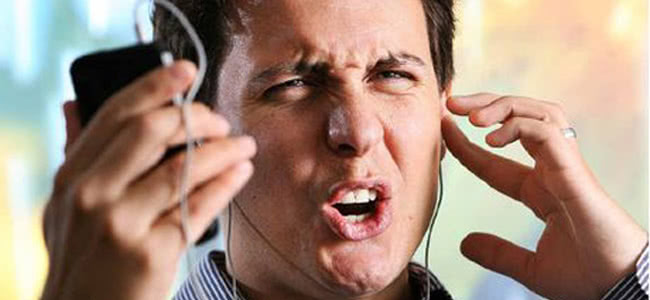Do you like your music loud? Really loud? Well never fear, new research lead by a NSW professor is challenging our perceptions about the damage that excessive volumes can have on our ears.
University of NSW professor Gary Housley has quashed the myth that when we experience temporary hearing loss after being exposed to loud music at a concert it is causing permanent damage, as Nine News reports.
Housley’s paper, published in the journal Proceedings of the National Academy of Science (PNAS) argues that whilst we may experience a loss of hearing after exposure to intensely loud music, it is just the ears way of adapting to the increased volume and it is reversible.
Along with researchers from New Zealand and the US, Housley found that when sound levels rise, the cells in the cochlea release a hormone which causes a temporary reduction in hearing sensitivity.
“It may explain why we lose our hearing for hours or days after we have been exposed to a rock concert or listen to music at high levels using our personal music players,” says the NSW Uni professor.
The research, as The Atlantic describes, is a collaborative study undertaken over a 20 year period, and was conducted by exposing mice lacking a specific gene receptor, thought to be involved in protecting the inner ear, to sustained periods of moderately loud noise while measuring their loss of hearing sensitivity. “What we have always thought was temporary noise damage… may not be this, but instead is the ear regulating its sensitivity in background noise.” – Professor Peter Thorne
They found that when sound levels rise, the inner ear releases a hormone that binds to the receptor – missing in the genetically modified mice group. The released hormones reduce the amount of sound transmitted to the ear, causing hearing sensitivity to worsen as a protective measure. During that time, the ears are less sensitive to acute sounds, but also able to tolerate louder-than-usual volumes without causing permanent damage.
Speaking to the New Zealand Herald, Housley’s colleague, University of Auckland professor Peter Thorne says, “what we have always thought was temporary noise damage – that is, the temporary hearing loss experienced in nightclubs or a day’s work in factories – may not be this, but instead is the ear regulating its sensitivity in background noise.”
Thorne goes on to say, “this work is important because it shows that our ears naturally adapt to their environment, a bit like pupils of the eye which dilate or constrict with light, but over a longer time course.”
But before you start blasting your favourite song at full volume without a worry for your ears, or those of your poor neighbours, Prof. Housley warns that continued loud noise can lead to irreversible damage through the loss of high-frequency hearing. “It’s like sun exposure,” explains Professor Housley. “It’s not the acute exposure, but the chronic exposure, that can cause problems years later.”
Prof. Thorne adds, “If we exceed a safe dose of noise, our ears can still be damaged permanently despite this apparent protective mechanism.” So basically loud music is okay, but in moderation. “If we exceed a safe dose of noise, our ears can still be damaged permanently despite this apparent protective mechanism.” Professor Peter Thorne
When it comes to exceeding safe sound limits personal music players like iPods are the biggest offenders. Prof. Housley says, “this is clearly the case for personal music devices, these deliver much higher sound levels into our ears than naturally occurred as our hearing sense evolved.”
Research also suggests that people are regularly listening to personal music devices in excess of 100 decibels. By comparison, safe sound levels, according to workplace legislation, are set at an upper limit of 85 decibels for eight hours a day. A typical nightclub however exposes its patrons to sounds of up to 95 to 105 decibels.
With so many young people permanently plugged into their iPod or mobile phones, the European Union is trying to tackle the issue head on by implementing a noise level restriction on all personal music devices. New legislation coming into effect earlier this year means that all music players and mobile phones sold in the EU must have their sound capped at 85 decibels.
The Australian government is yet to follow suit, with no such restrictions in place here. So for now you can still annoy everyone else on the train with your iPod blaring Eminem loud enough for the whole carriage to hear.
This latest research is one of many musically themed studies conducted in the name of science. From serious studies to the more absurd, with conclusions including rock music makes your racist and that music is better than sex. We compiled 15 of the wackiest facts science has taught us about music, which you can view in the slideshow below.

































